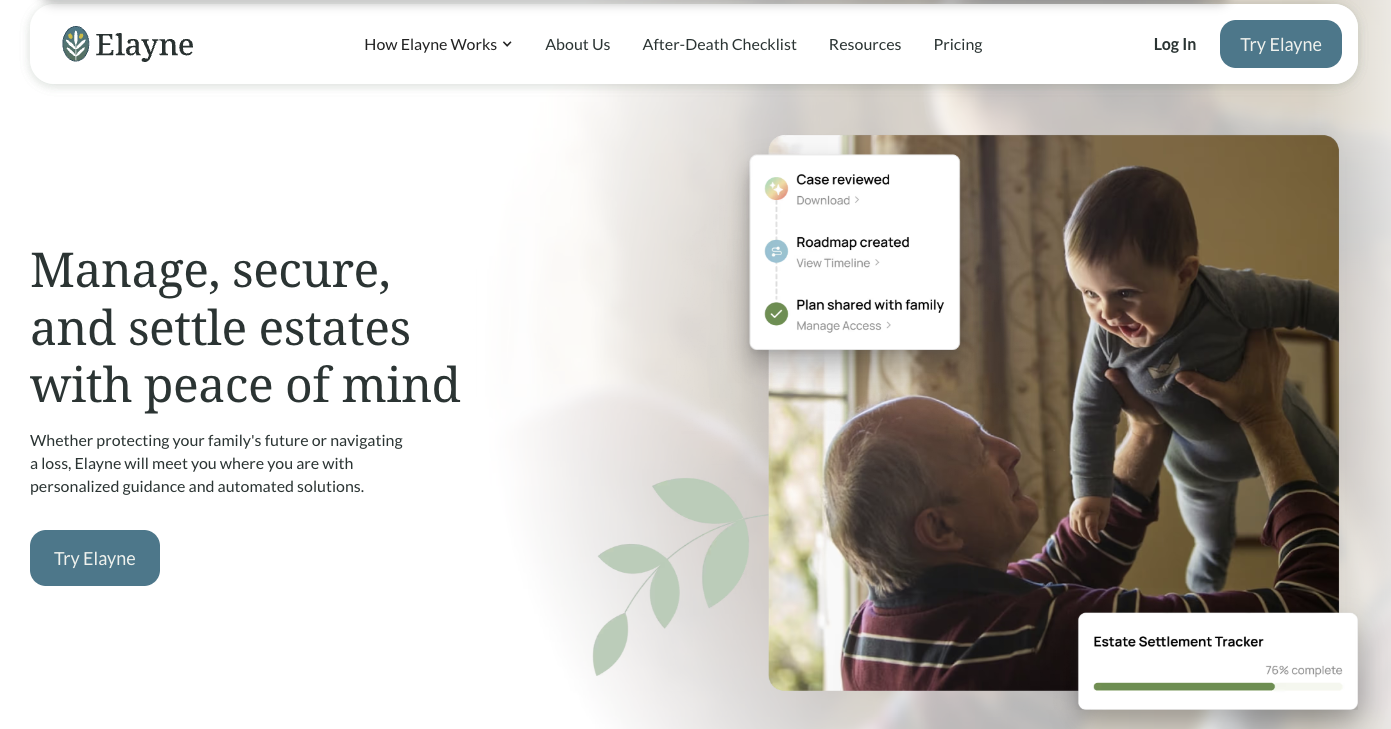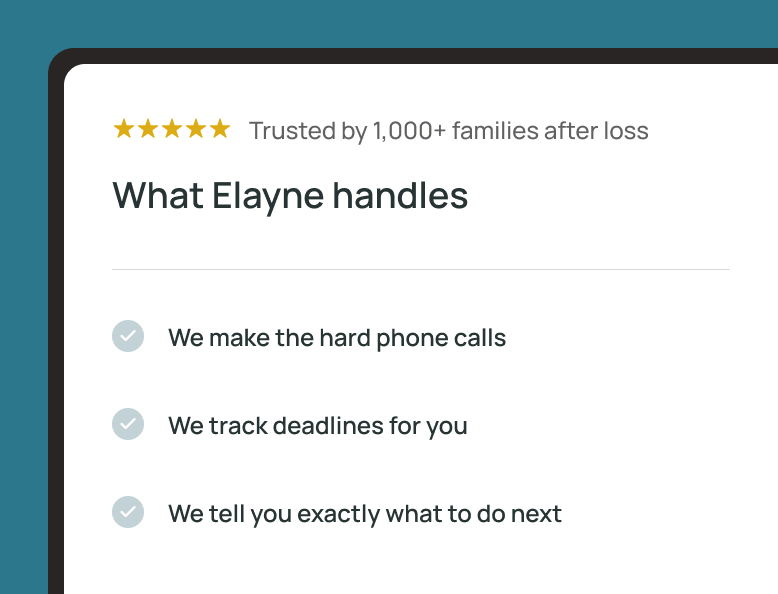Dealing with the death of a loved one can impact just about every aspect of your life, including your professional or work life. Many large employers offer bereavement leave in situations like this or have other policies in place. Smaller companies are likely to handle employee bereavement on a case-by-case basis.
Letting your employer know that you’re grieving may be difficult, but it's important to let your manager and colleagues know what's going on, especially if you'll need to take some time off or will need some help handling work projects. (For more on how workplaces can make this conversation easier for everyone involved, read Elayne's Guide to Support Bereaved Employees.)
This article will cover ways to approach your employer when you are dealing with a devastating loss.
Key Takeaways
- Most U.S. employers don't offer federally mandated bereavement leave—check your company handbook or HR.
- Request time off in writing and ask about using vacation or sick days if formal leave isn't available.
- Grief affects focus and energy at work; advocate for schedule changes or reduced workload as needed.
- Elayne handles post-loss paperwork so you can focus on healing instead of administrative burdens.
{{blog-cta-admin}}
Talking to Your Boss
Although it may seem uncomfortable, talking to your employer can actually alleviate stress. If possible, you likely will want to speak to your supervisor personally before taking time off.
If your company offers bereavement leave, you can ask for any information needed and how to take it. Many bereavement policies are outlined in a company handbook or can be provided by HR. Determine how long of a leave your company offers, and whether this absence is paid, unpaid, or partially paid. Here are a few other critical considerations:
Ask your employer how bereavement leave is classified within the company.
Some employers don’t offer formal leave when grieving but allow employees to use accrued vacation or sick days. Some employers offer to pay some time off, leaving the rest unpaid.
Clarify bereavement leave status before taking time off.
Although everyone deserves time off to process a loss, a few companies provide bereavement leave only to full-time employees. This benefit may not apply to contractors, part-time, or employees on probation.
Confirm requirements for taking leave.
A few businesses require proof of death before allowing a leave of absence, often in the form of a death certificate. Many funeral homes provide documentation for employers as well.
Always submit a formal request in writing.
If you intend on working, let your boss know of any accommodations you may require, small steps like schedule adjustments or remote work can help with balancing grief and productivity. This may include a reduced workload, remote work, or leaving early to take care of family obligations.
How to Deal with Grief at Work
Grief doesn’t disappear when bereavement leave ends. Dealing with grief at work may require patience and compassion from your employer and colleagues. It also requires that you be kind to yourself.
Inform Your Boss and Colleagues
In the first weeks after losing someone close to you, many people struggle to keep up with their usual pace at work. Share what you’re experiencing with co-workers and management as soon as possible. They can help support you and adjust expectations on the job.
Allow Time for Grief Throughout the Day

Grief is an unpredictable emotion, but if your workplace allows, you may want to carve out specific times to acknowledge your grief. For instance, you may start by allowing yourself 15 minutes three or four times a day to embrace any emotions you’re experiencing. After the 15 minutes, push through your daily routine until the next "feelings break."
Plan for Emergency Moments
As much as we’d like to schedule our grief, there are times when it’s inescapable. Plan what you'll do when you suddenly need to collect yourself. You can even discuss an exit strategy with your manager. You might also want to schedule breaks between appointments and meetings, or work remotely until you can handle full days at your workplace.
Advocate for Yourself
Working through grief requires adjustments and changes, but you may need to define what that looks like to your employer. Consider how your employer can help you through this transition and approach them with recommendations. Accommodations may include:
- Schedule changes
- Longer deadlines
- Weekends off
- Reduced client meetings
- Increased breaks throughout the day
Common Experiences with Grief
Although grief is an individual experience, most people face a few similar experiences on the job. These experiences may include:
- Feeling sudden bursts of grief, sadness, or anger. These waves of grief come unexpectedly and may interfere with everyday tasks.
- Struggling to complete tasks. Finding that previous employment tasks are more tiresome or take longer to complete is common, especially when you first return to work.
- Exhaustion or feeling physically ill. Grief can impact your entire body, manifesting in physical symptoms. You may feel exhausted, run-down, or physically ill when grieving.
- Finding relief at work. A few people are surprised that work offers a distraction from their sadness. Work can keep the mind busy, so it doesn’t dwell on the recent loss.
Example Letter to Your Boss
When telling your boss you’re grieving, it’s best to be direct. Include a clear subject line and keep the email brief. Here’s an example of a written notice for an employer:
Dear [Manager or HR Representative Name],
I am writing to request bereavement leave, starting on [date starting] and ending on [date ending]. My [family member] passed away on [date of passing]. I would like to take additional paid vacation time from [date started] until [date of return].
During this time, you can reach me through email or cell phone at [contact information].
Thank you,
[Your Name]
{{blog-cta-admin}}
In Conclusion
Struggling with grief is incredibly difficult, and it can greatly affect a person's ability to do their job.
Notifying your employer as soon as possible is the easiest way to help them help you. If you’re unsure what to say, the examples above can be helpful to reference.
Many managers and human resource teams will help grieving employees with transitions and accommodations; you simply need to advocate for yourself and ask. If you're struggling after the death of a loved one, reach out to Elayne. We are experts at helping people navigate the many administrative tasks that arise after a loved one dies, so during a difficult time, you can focus on yourself and your friends and family.

FAQ
Is it OK to take time off from work when you're grieving the death of a loved one?
Unfortunately, the United States doesn’t offer a federally mandated bereavement leave policy. Workers aren’t guaranteed time off to grieve a death or attend a funeral. If you require time off to grieve, always contact your employer directly. If the company offers bereavement leave, taking the time off to process your loss is okay and encouraged.
Does a miscarriage qualify a person for bereavement leave?
A miscarriage or stillbirth may qualify under an employer’s bereavement policy (if one is available) or other paid leave policies. If you're not sure, ask your manager or a human resources representative.
How does grief affect someone's work?
Grief impacts everyone differently and fluctuates over time. Feelings of exhaustion, anger, and sadness can be overwhelming. Grief can also impact concentration, patience, and focus. Losing a loved one isn’t just an emotional feeling; physical symptoms can present themselves as well.












































